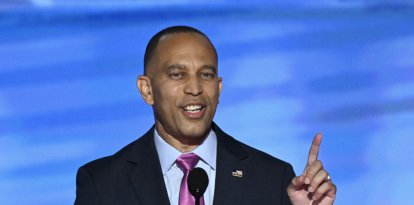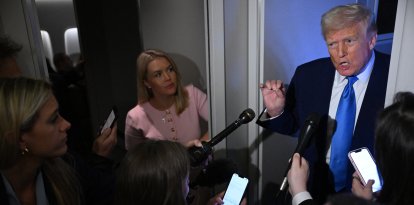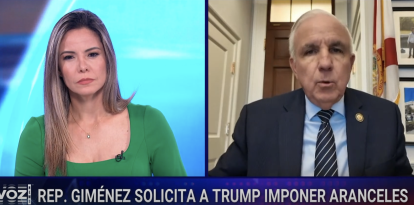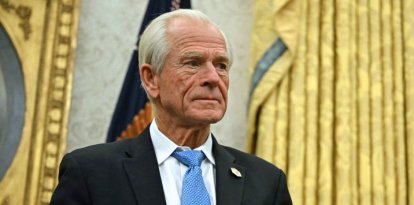Fundraising gap worries congressional Republicans: "We will lose winnable seats"
For the Senate, the GOP could win snatch as many as eight seats from the Democrats: Pennsylvania, Michigan, Wisconsin, Nevada, Nevada, Arizona, Ohio, Montana and West Virginia.
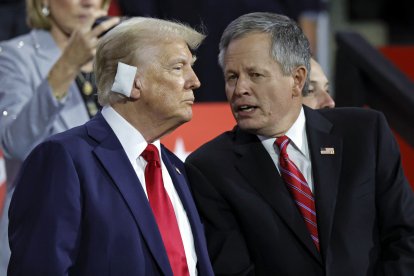
Sen. Daines is charged with getting more Republicans into the Senate in January 2025/ Kamil Krzaczynski
The Republican Party hopes to win back the Senate in the November elections, where it will face a much more favorable map than Democrats. This year, "Class 1" senators are up for renewal, a group in which the GOP has eight states in its sights: Pennsylvania, Michigan, Wisconsin, Nevada, Arizona, Ohio, Montana and West Virginia. However, the hope of regaining the White House with a majority in the upper chamber faces a somewhat daunting obstacle: fundraising.
It turns out that six of the Republican candidates in the aforementioned states are way down compared to their Democratic rivals in this regard, given that Democratic megadonors have been shelling out large sums of money in each of these races. Of course, this situation is not going unnoticed among Republicans.
"Right now the left-wing billionaires are massively outspending us — that’s what’s keeping me up at night," warned at the Republican National Convention Senator Steve Daines, current chairman of the National Republican Senatorial Committee (NRSC), a position that seeks to get more Republicans elected to the Senate and retain the seats of incumbants.
"We will lose winnable seats"
For example, according to AdImpact, Ruben Gallego has a $57 million lead over Kari Lake in Arizona, while Jacky Rosen and Tammy Baldwin are ahead of their respective rivals in Nevada and Wisconsin, Sam Brow nand Eric Hovde, by $41 million.
Democrats also have a lead (albeit smaller) in Michigan and Montana, while Republicans outnumber them in Pennsylvania, where Dave McCormick hopes to recall incumbent Bob Casey. In Maryland, in an election that may be close since Larry Hogan became the Republican nominee, Republicans have spent $9 million more than Democrats.
In this political environment, Jason Thielman, executive director of the National Republican Senatorial Committee, expressed concern about the financial differences between the candidates.
"The only thing preventing us from having a great night in November is the massive financial disparity our party currently faces. We are on a trajectory to win the majority, but unless something changes drastically in the next six weeks, we will lose winnable seats," he said recently.
Republicans' strategy to take back the Senate
With the Upper House at 51-49 in favor of the Democrats, Republicans will need to flip at least two seats among the eight they consider attainable to regain the majority.
Unlike his predecessor at the helm of the NRSC, Rick Scott (R-FL), who chose not to get involved in the primary process, Daines opted for a more aggressive strategy in the primary process. The Montana senator directly endorsed the candidates with the best fundraising potential and the best chance of winning at the polls.
Daines endorsed Dave McCormick, Jim Justice, Mike Rogers, Sam Brown, Tim Sheehy, Bernie Moreno and Eric Hovde in key states. The senator did the same for Larry Hogan in Maryland, although his victory looks a little less likely than previous ones, given that the so-called "Old Line State" has a strong Democratic lean in federal elections.
RECOMMENDATION

